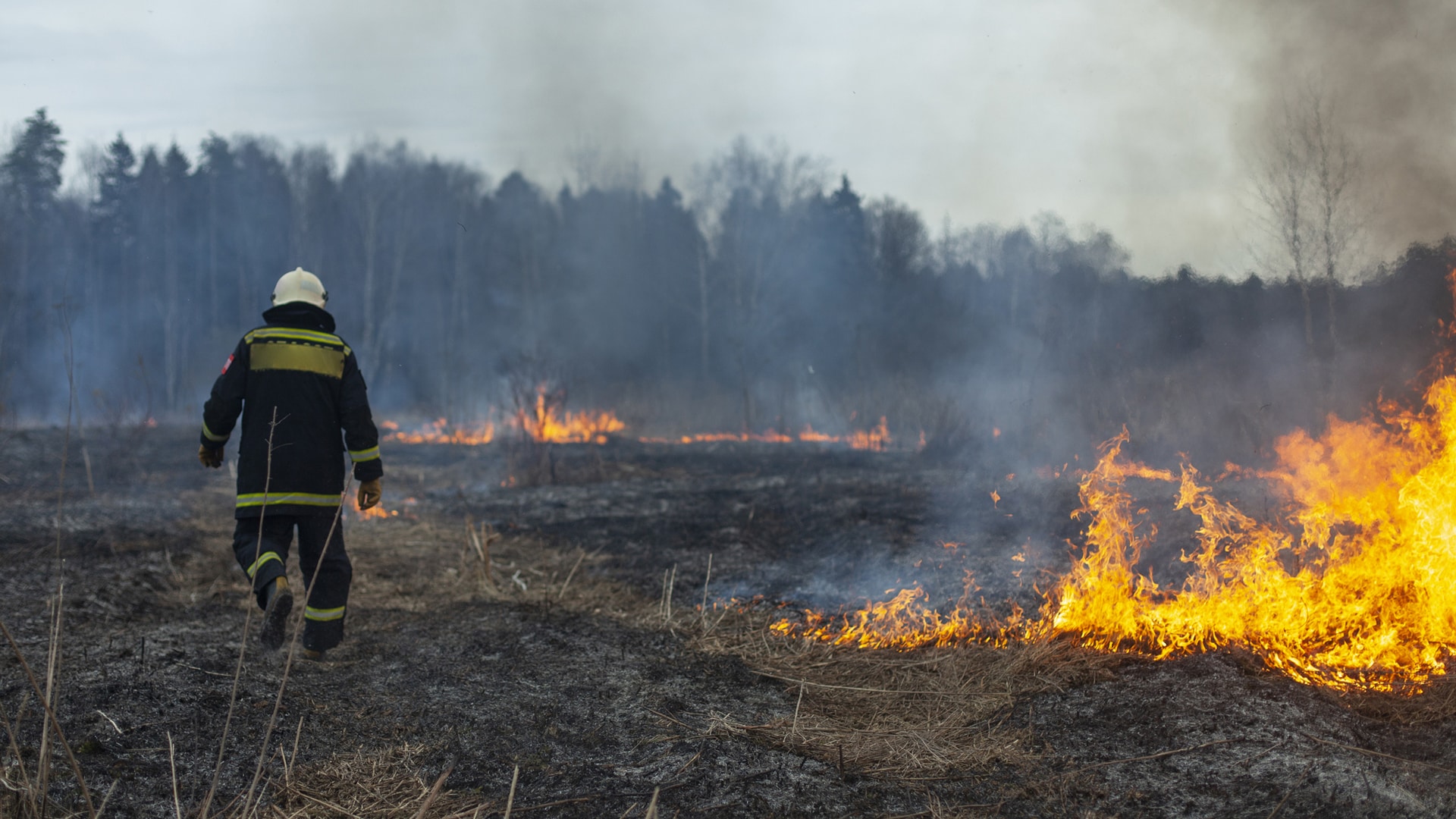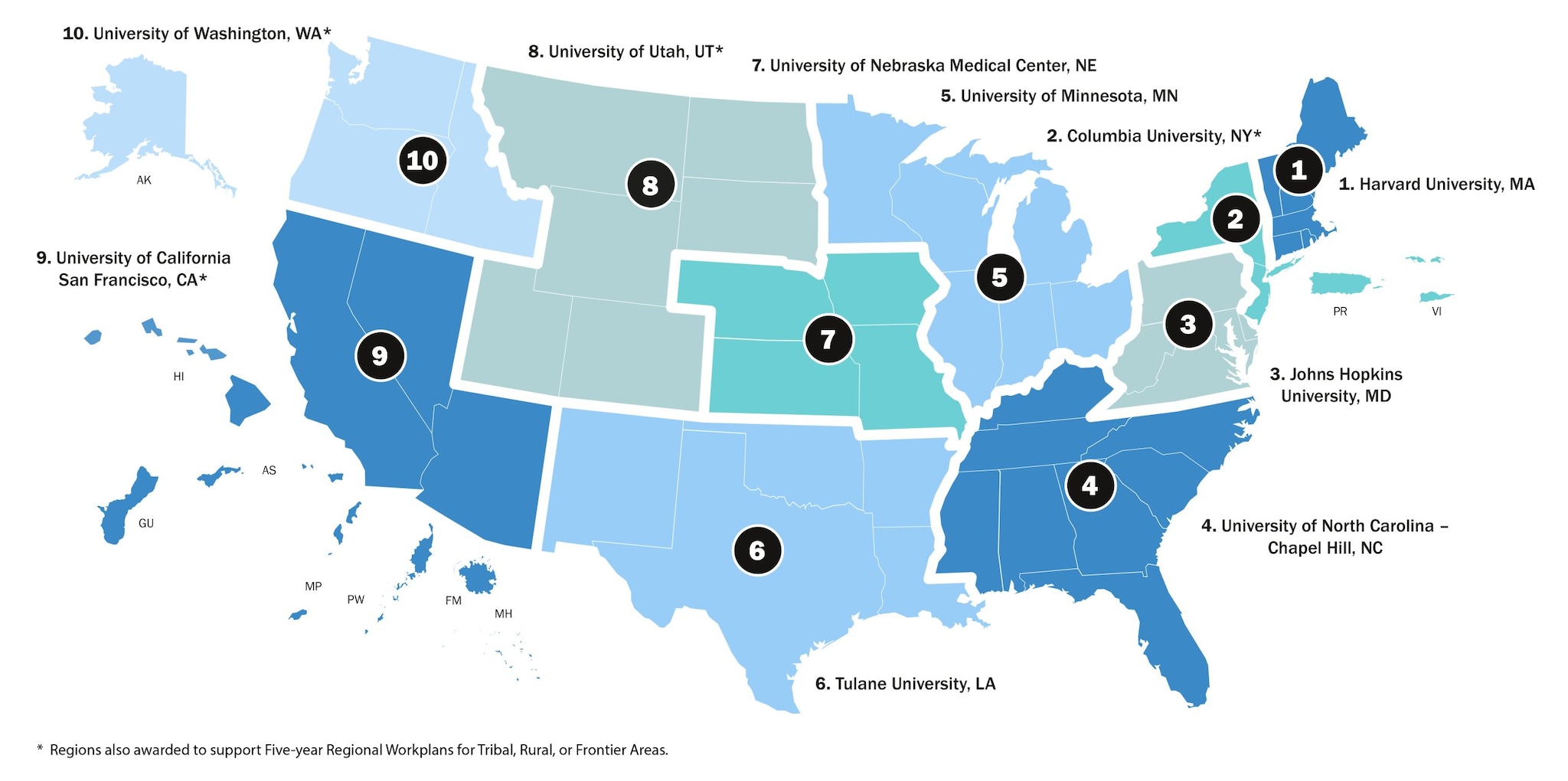What to know
- Recent public health emergencies have underscored the critical need for a more robust and resilient U.S. public health system. Jurisdictions face diverse and evolving challenges, necessitating tailored approaches to emergency preparedness and response. To address these needs, the Centers for Disease Control and Prevention (CDC) has funded a network of Regional Centers for Public Health Preparedness and Response.

Background
In September 2024, CDC's Office of Readiness and Response (ORR) Division of Readiness and Response Science (DRRS) awarded ten five-year cooperative agreements to one institution in each of the ten U.S. Department of Health and Human Services (HHS) region (see Funding Data). The Regional Centers will play an essential role in advancing the uptake of evidence-based strategies and interventions across communities, enhancing their ability to prepare for and respond to public health threats. In addition to the core funding, CDC is supporting efforts for tribal, rural, and frontier communities to disseminate and implement tailored evidence-based strategies and interventions (see Funding Data).
To bolster the effectiveness and resilience of the public health system, regional coordination is essential. A key focus of the Regional Centers will be to promote equitable access to services and resources, ensuring that populations with increased risk are not disproportionally impacted by public health emergencies. By working with state, tribal, local, and territorial health departments, non-profits, universities, hospitals, and healthcare coalitions, the Regional Centers will strengthen the nation's overall readiness and response capabilities.
Columbia University will provide coordination, technical assistance, and training to the Regional Centers. A total of $9,054,230 was awarded to 10 institutions for Year 1 of a five-year cooperative agreement, subject to available funding.
Funding data
Regional Centers for Public Health Preparedness and Response

*Regions also awarded to support five-year regional workplans for rural, tribal, or frontier areas.
HHS Region 1 - Harvard University, MA:
CT, ME, MA, NH, RI, VT
*HHS Region 2 - Columbia University, NY:
NJ, NY, PR, VI
Population Focus: Rural
HHS Region 3 - Johns Hopkins University, MD:
DE, DC, MD, PA, VA, WV
HHS Region 4 - The University of North Carolina at Chapel Hill, NC:
AL, FL, GA, KY, MS, NC, SC, TN
HHS Region 5 - University of Minnesota, MN:
IL, IN, MI, MN, OH, WI
HHS Region 6 - Tulane University, LA:
AR, LA, NM, OK, TX
HHS Region 7 - University of Nebraska Medical Center, NE:
IA, KS, MO, NB
*HHS Region 8 - University of Utah, UT:
CO, MT, ND, SD, UT, WY
Population Focus: Tribal
*HHS Region 9 - University of California San Francisco, CA:
AZ, CA, HI, NV, Pacific Territories: American Samoa, Commonwealth of the Northern Mariana Islands, Federated States of Micronesia, Guam, Republic of Palau, Republic of the Marshall Islands
Population Focus: Rural/Pacific Island Territories
*HHS Region 10 - University of Washington, WA:
AK, ID, OR, WA
Population Focus: Tribal
